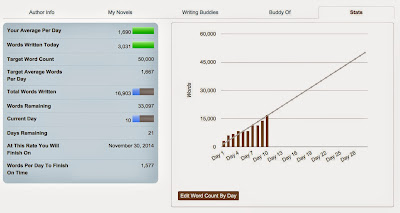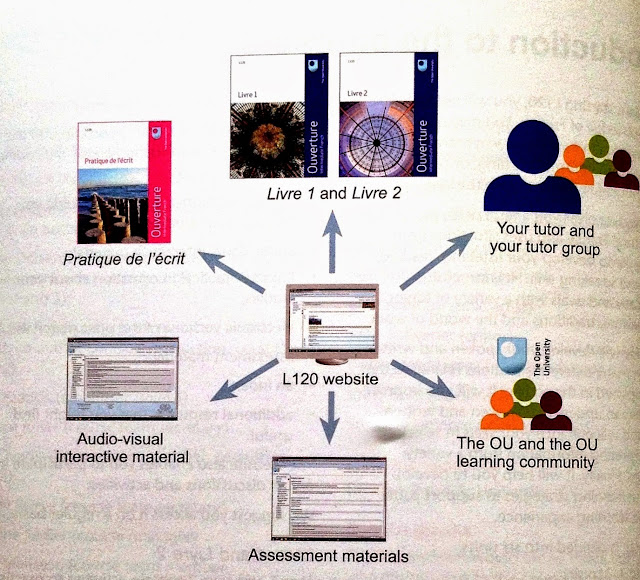MOOCs (Massive Open Online Courses) are new and FutureLearn, a wholly owned subsidiary of The OU is itself adapting as traditional institutions embrace e-learning, respond to feedback and results and improve.
MOOCs will be new for a decade.
E-learning like this is not a lecture series online, TV online, a book online, quiz or a tutorial online. Whilst this is invariably the starting place for 'ground based' educators, the academics working with instructional designers, not in isolation, need increasingly to begin with a blank sheet rather than looking at the physical assets of academics, books, lectures and papers around them.
What we are witnessing today is that transition from the Wright Brothers to the World War One fighter planes. We are seeing hints of the jets to come. We are a long way from drones. I use the analogy having just completed a wonderful three-week MOOC 'World War 1: Aviation Comes of Age'.
Innovations go through recognisable phases.
E-learning in the forms of MOOCs is still at the stage of 'early adoption' - rest-assured they will become commonplace, though surely with a different name. MOOCs can be a hybrid during a transitional phase so long as this is seen as the first step in many away from traditional approaches, embracing what works online.
Academics need to come out of their cupboard, come away of their studies and welcome into their midst those of us seeking to understand and to integrate the processes involved - that combination of learning and e-learning: how and why we learn and how then scale (massiveness), interactivity (digital) and connectivity (openness) changes things. In time, when the academics themselves have reached their status of 'doctor' and 'professor' through e-learning, when we can call all them 'digital scholars' rather than simply 'scholars', then we'll be able to look down from the clouds and smile at how much things have changed.
Think evolution not revolution.
Think how long it will take to see out the current generation of academics - thirty to fifty years?
Ultimately MOOCs are about a combination of sequential activities and 'interactivities', collaboration and connection.
Gilly Salmon coined the term 'e-tivities': sadly not in common usage, it nonetheless captures beautifully what is required for students to learn online - doing stuff, alone, with other students and with the academics.
Collaboration is a long held view of a kind of learning in 'communities of practice' most associated with the academics Lave and Wenger: how working together is a more effective for of constructed learning.
While 'connectivity', often associated with the academic George Siemens, is the new kid on the 'learning theories' block. Connectedness as a way of learning is dependent on a few things: the affordances of the platform to permit this with ease: if you have the opportunity compare current student messaging and blogging platforms at your institution with those at FutureLearn which has stripped back the unnecessary and concentrated on this 'connectivity'; the number and mix of participants: massive helps as a small percentage of a group will be the front runners and conversationalists with others benefiting from listening in, out of choice not pressure and the 'quality' of the participants in that they need to have both basic 'digital literacy' skills and reliable access based on their kit and connection.
Embrace the pace of change
A lean and smart organisation will tumble over itself, re-inventing and experimenting with ways things are done until clear methodologies present themselves for specific types of learning experience: 'head work' is different to' handiwork' - academic study is different from applied practice. Subjects freed from books and formal lectures, like the genii released from the bottle will, in the cloud, form into shapes that are most suited to their learners and what is being taught: blended and 'traditional' learning most certainly have their place.
Academic snobbery is a barrier to e-learning
John Seely Brown, working out of the Palo Alto Research Centre, famous for coming up with the WYSIWYG interface between us and computers and a 'learning guru' is passionate about the idea of 'learning from the periphery' - this is how and when someone new to a subject, or team, hangs around at the edges, learning and absorbing what is going on at the heart. The wonder of open learning is the participation of equally brilliant and curious minds, some who know a good deal on a subject while others are just starting out, eager to listen, willing to ask questions that may be naïve but are usually insightful; in the two-way exchange both the die-hard academic and the newbie change for the better. Learning feeds of this new fluidity.
It is evidence of the 'democratisation' of learning.















